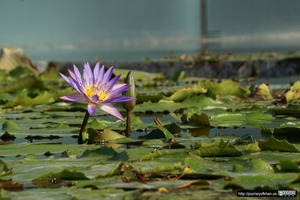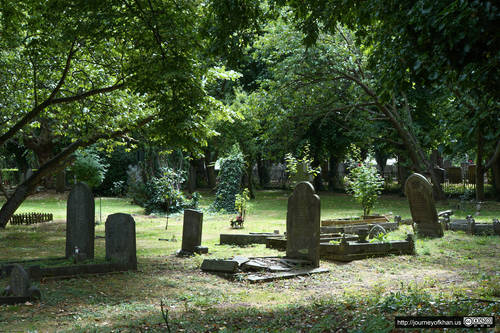At Rest

When people die, we tend to say they are at rest. Headstones on burial mounds sometimes etch the words, “Rest in peace.” This euphemism isn’t limited to English. It exists word for word as the German phrase, “Ruhe in Frieden,” or the Spanish saying, “que descanse en paz.” In the conscious, living mind of an individual, rest is an action we take to relieve ourselves of stress and weariness. It is an effort we take to recover from our efforts, either mentally or physically.
Rest doesn’t necessarily involve inaction, such as laying on a beach or falling asleep in one’s bed. It can involve an action, such as watching a movie, playing a game or swimming in a lake. So is it odd that we apply this term to those who no longer have the ability to think? Those who are lost from this world, with no way to ever again participate in the existence we share, are at rest only in our memories. Death, as far as we know, removes one’s ability to rest.
Rest in our culture can be rare and fleeing. Some of us plan out our holidays with details of flights or road stops, hotels or hostels, museums or art galleries. Other don’t plan on anything other than laying on a beach and taking each possibility as it comes. Yet still there is a sense of a beginning, an ending and a memory of the adventure. We compartmentalize moments in which we are allowed to rest. We are allowed our zero to four weeks of yearly paid leave, depending on our employer. We often return answers to the question, “How was your vacation?” with the cliché response, “Not long enough.”
We allow ourselves that limited freedom in exchange for the remainder year of work. We feel locked in to the eight to five grind, depending on that belief we share, which says our work is valuable, our contributions necessary and our suffering a means to an end; whether that’s a better society or heaven or some other nonsense.
“His answer to every problem, every setback was ‘I will work harder!’ —which he had adopted as his personal motto.” -George Orwell, Animal Farm
We work so hard, and then we die. We come to that ultimate rest, that long standing peace from which we will never again feel any rushed stress of midnight deadlines, nor the excitement of a first date. Never again will we be shaken from the night by a crying child, or a 3 a.m. call where we are needed in an emergency room. Lost to us is the experience of drinking merrily in a pub celebrating a dear friend’s birthday. Never again will we face the sorrow of a failed relationship, nor will we experience the joy of late nights squandered on a camping trip, smoking marijuana and contemplating the deep meaning of our existence.
“No rest, for the best of the best” -Agent J, Men in Black1
We come to the ultimate peace in which our existence is frozen irrevocably in the the immutable past and imperfect memories of those who have cared for us. We come to rest in a state, not of mere sleep or unconsciousness, but of never again being able to actively affect the lives of those who are still living. It is the type of peace that cannot be experienced in life, for even when we sleep, we dream. Even when we lay on the beach, we contemplate. Even when we meditate, our thoughts speed by. Our streams of consciousness are a riverbed that never dries, pouring forth thoughts as if they are clouds in the sky, leaping like frogs between endless lanes of cars, until we die. Only in death are we literally at the point where it is impossible for us to feel regret, or for that matter, anything at all.

When we say someone is at rest, we may also say that he or she is at peace. Those who believe in an afterlife have faith that those who die still have a consciousness, in a state that we will all eventually share. Many with such faith believe that even if a loved one is at rest, it is only momentarily. But for others, death is truly the great unknown. It is the void from which no human has ever returned, and we have no rational reason to believe that anyone ever will.
"Because I could not stop for Death,
He kindly stopped for me;
The carriage held but just ourselves
And Immortality." -Emily Dickinson
We often seek rest from our increasingly hectic world. Yet despite the euphemism we associated to the finality of our existence, seeking a premature end to our story, except in the case of terminal pain or illness, is often frowned upon. This duality in our vocabulary may be an attempt to seek a purpose in our reality. That after every task we create from our birth to our last is part of a story we call our past. Rest is viewed as a friend that is an end to everything we pretend to be the culmination of a life.
That rest that is promised so figuratively, that feeling of comfort in what is beyond the great unknown, can rip away the years from us like a race car driver speeding towards a fist place victory, while being the only car on the track. It can cheat us of the rest we pass by in the now; that of the comfort of our companions and loved ones. To claim that the end of our story is the ultimate rest is to deny the hope of the peace we seek while we are still alive. What lies at the end of our tenure, while traveling on this spaceship we call Earth, is simply absence; not only of pain, but also of joy or anything else.
Creators sometimes dedicate their works of art, film and literature to the memories of those who can no longer be anything more than memories. Others dedicate their works to loved ones and family; to future memories, of those who can still participate in our stories. Striving to hold tightly to people while they are here among us will not keep them on this world forever, but it may bring about peace in their lives, that they can experience with us.
To share in the peace we so greatly desire for all of humanity, is to build upon the hope that rest does not require resistance to our current circumstances. It is something more than just a way to reconcile our ends. To equivocate the closing of our book on the last page of our story, with that indefinite expanse, is to rob ourselves of something wonderful. Because every sunset and cloud, ever beach we walk and every ocean we swim on this Earth, from our fermata to our birth, is a growing crescendo. We are a flame that struggles to burn in this river we call life, against all odds, tides and strife, with every one of our direct ancestors, for millions of years, never once failing to bear a child.
Eons of matter collided in order to bring us our world, in a universe that cannot rest until every one of its great gas stars fizzles and dies. In that whisper, time will cease to be, and all the creativity that pushed our universe to give us those stars—that created life which would grow to ask the great questions about who and what we are—would lose any of its ascribed meaning. For our universe will also succumb to that ultimate rest. Everything that ever was, and is, will be in that perpetual peace, which can only be found in entropy.
-
Men in Black: The Quick Clone. Season 2, Episode 1 (TV Series) ↩
